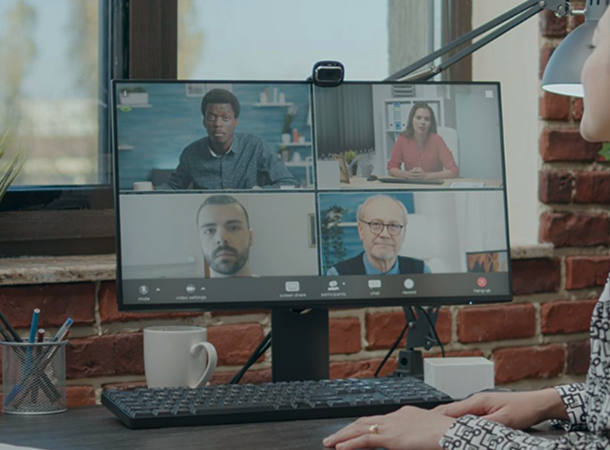
Close
Remote contractors have become an essential component of many modern businesses, offering numerous advantages that can significantly benefit organizations. One of the primary benefits of employing remote contractors is the access to a global talent pool. By hiring professionals from various geographical locations, companies can leverage a diverse range of skills and expertise that may not be readily available in their local area.
This expanded access to talent can foster increased innovation and creativity within the organization, as well as provide specialized expertise for specific projects. Furthermore, remote contractors offer businesses enhanced flexibility and scalability. Companies can easily adjust their workforce size based on project requirements without incurring the substantial overhead costs associated with full-time employees.
This adaptability allows organizations to respond effectively to fluctuating market conditions and project demands without being constrained by long-term employment commitments. Additionally, remote contractors often bring fresh perspectives and innovative ideas to their work, which can be invaluable for businesses striving to maintain a competitive edge in their respective industries.
When working with remote contractors, clear communication and expectations are essential for a successful working relationship. It’s important to establish regular communication channels and set clear expectations from the outset. This includes outlining project timelines, deliverables, and any specific requirements or guidelines that need to be followed.
By setting clear expectations, both parties can ensure that they are on the same page and working towards the same goals. In addition to setting clear expectations, it’s important to establish effective communication channels to keep remote contractors engaged and informed. This may include regular check-in meetings, using project management tools for collaboration, and providing access to communication platforms such as email, instant messaging, and video conferencing.
By maintaining open lines of communication, businesses can ensure that remote contractors feel supported and connected to the organization, despite working from a different location.

In order for remote contractors to be successful, it’s essential to provide them with the right tools and technology to effectively carry out their work. This may include access to project management software, collaboration tools, and any specific software or systems required for their role. By providing remote contractors with the necessary tools and technology, businesses can ensure that they have everything they need to work efficiently and effectively.
Furthermore, businesses should also consider investing in cybersecurity measures to protect sensitive data and information when working with remote contractors. This may include implementing secure networks, using encryption software, and providing training on best practices for data security. By prioritizing cybersecurity, businesses can mitigate potential risks associated with remote work and ensure that sensitive information remains protected at all times.
Despite working remotely, it’s important for businesses to foster a sense of team and inclusion among their remote contractors. This can be achieved by creating opportunities for virtual team building activities, such as online social events, team challenges, or virtual coffee breaks. By encouraging interaction and collaboration among remote contractors, businesses can help create a sense of belonging and camaraderie within the team.
In addition to team building activities, businesses should also make an effort to include remote contractors in company culture and initiatives. This may include inviting them to company meetings or events, providing access to internal communication channels, and involving them in decision-making processes when appropriate. By making remote contractors feel like an integral part of the team, businesses can foster a positive working environment and promote a sense of inclusion for all employees, regardless of their location.
Setting clear goals and objectives is crucial for remote contractors to understand their role within the organization and what is expected of them. Businesses should take the time to outline specific goals and objectives for each project or assignment, as well as provide regular feedback on performance and progress towards these goals. By setting clear expectations and providing feedback, businesses can help remote contractors stay focused and motivated towards achieving their objectives.
Furthermore, businesses should also ensure that remote contractors have a clear understanding of how their work contributes to the overall goals of the organization. This may include providing context on how their contributions impact the business as a whole, as well as recognizing their efforts in helping the company achieve its objectives. By aligning remote contractors with the broader goals of the organization, businesses can ensure that everyone is working towards a common purpose.

Regular check-ins and feedback sessions are essential for maintaining open lines of communication with remote contractors and providing them with the support they need to succeed. Businesses should schedule regular check-in meetings to discuss progress, address any challenges or concerns, and provide feedback on performance. These meetings can also be used as an opportunity to recognize achievements and show appreciation for the contributions of remote contractors.
In addition to regular check-ins, businesses should also encourage open feedback from remote contractors on their experience working with the organization. This may include soliciting input on ways to improve processes, addressing any issues or barriers they may be facing, and seeking suggestions for how to better support their work. By actively seeking feedback from remote contractors, businesses can demonstrate that their input is valued and make necessary adjustments to improve the working relationship.
Recognizing and rewarding the contributions of remote contractors is important for fostering a positive working relationship and maintaining motivation. Businesses should make an effort to acknowledge the efforts of remote contractors through verbal praise, written recognition, or even small tokens of appreciation. By showing gratitude for their hard work and dedication, businesses can help remote contractors feel valued and motivated to continue delivering high-quality results.
Furthermore, businesses should also consider implementing a formal rewards program to incentivize exceptional performance from remote contractors. This may include bonuses, incentives, or other forms of recognition for exceeding expectations or achieving significant milestones. By providing tangible rewards for outstanding contributions, businesses can further motivate remote contractors to go above and beyond in their work.
In conclusion, working with remote contractors offers numerous benefits for businesses, including access to global talent, flexibility, and fresh perspectives. However, in order to maximize the potential of remote contractors, it’s essential for businesses to establish clear communication channels, provide the right tools and technology, foster a sense of team and inclusion, set clear goals and objectives, implement regular check-ins and feedback sessions, and recognize and reward their contributions. By prioritizing these key areas, businesses can create a positive working environment for remote contractors and ensure that they are fully supported in their roles.
If you’re interested in learning more about how staff augmentation can transform your project management, check out this insightful article on augmentedteam.com. It provides valuable insights into the benefits of staff augmentation and how it can help you successfully integrate remote contractors into your team.
Remote contractors are individuals who work for a company on a contract basis, but do not work in a traditional office setting. They work remotely, often from their own homes or co-working spaces.
Remote contractors can be integrated into a team by establishing clear communication channels, setting expectations for availability and deliverables, and including them in team meetings and activities.
Integrating remote contractors into a team can bring diverse perspectives, access to specialized skills, and increased flexibility for the team. It can also help the team to be more adaptable and responsive to changing work environments.
Challenges of integrating remote contractors into a team can include communication barriers, time zone differences, and potential feelings of isolation or disconnection from the rest of the team.
Tools such as video conferencing, project management software, instant messaging platforms, and cloud-based file sharing can help facilitate communication and collaboration with remote contractors.
Augmented Team Pvt Ltd

